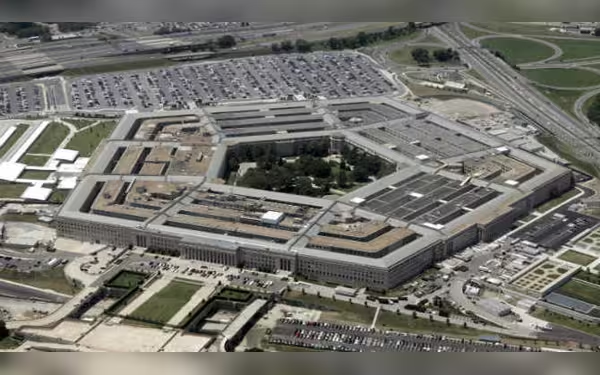Thursday, November 7, 2024 08:58 AM
US-Israel Cooperation on Lebanon Border Security
- US supports Israel in dismantling Hezbollah's attack infrastructure.
- Israeli military operations target Hezbollah checkpoints in Lebanon.
- Iran warned of serious consequences for direct attacks on Israel.
 Image Credits: jasarat
Image Credits: jasaratUS and Israel collaborate to dismantle Hezbollah's infrastructure amid escalating tensions on the Lebanon border.
The ongoing tensions between Israel and Hezbollah have escalated significantly, prompting a response from the United States. Recently, US Defence Secretary Lloyd Austin expressed support for Israeli Defense Minister Yoav Gallant in efforts to dismantle the attack infrastructure along the border with Lebanon. This development follows Israel's targeted ground raids against Hezbollah, a militant group based in Lebanon.
In a statement shared on X, formerly known as Twitter, Austin issued a stern warning to Iran, indicating that there would be "serious consequences" if Iran were to launch a direct attack on Israel in retaliation. This warning underscores the delicate balance of power in the region and highlights the potential for broader conflict.
Reports from foreign media indicate that the Israeli army has indeed entered Lebanon, with ground forces receiving support from the Israeli Air Force. The Israeli Defense Forces (IDF) have initiated ground operations against Hezbollah in southern Lebanon, characterized as "limited, localized, and targeted raids." The objective of these operations is to strike Hezbollah checkpoints situated in border areas, which are deemed critical for the militant group's operations.
In a strategic move, the Israeli military has declared certain villages in the border areas of Lebanon as military cantonments. This designation allows for increased military presence and operations in those regions. Meanwhile, the Lebanese army has reportedly retreated 5 kilometers from the border, a decision that may reflect the heightened risks associated with the ongoing conflict.
Naim Qassem, the deputy leader of Hezbollah, has publicly stated that his group is prepared for Israel's ground operations, indicating a readiness for potential escalation. As the situation unfolds, Israeli airstrikes on the southern outskirts of Beirut have continued, further intensifying the conflict. The Israeli military has also urged residents in proximity to Hezbollah infrastructure to evacuate, emphasizing the seriousness of the situation.
This latest round of hostilities raises important questions about the future of peace and stability in the region. The involvement of major powers like the United States and the potential for Iranian retaliation could lead to a wider conflict that affects not only Israel and Lebanon but also the broader Middle East. As the situation develops, it is crucial for all parties involved to seek diplomatic solutions to avoid further escalation and protect civilian lives.













